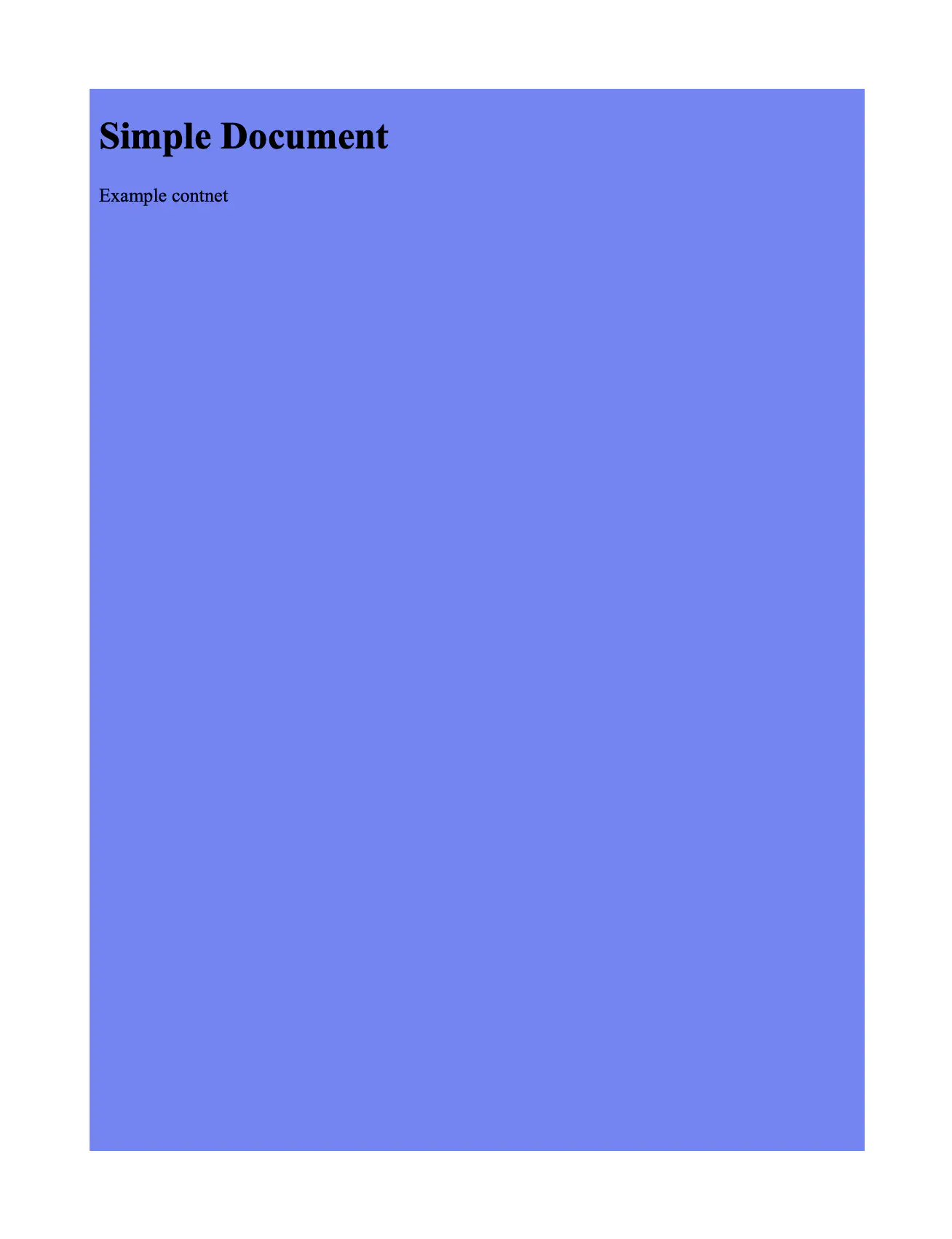Getting Started
On this page
This getting started to UniHTML guide will show how to get started working with unihtml. UniHTML is a UniPDF plugin that enables converting and injecting HTML to PDF files.
By the end of this introduction tutorial, you will be familiar with the process of converting HTML to PDF using UniHTML.
Setting Up The UniHTML Server
The UniHTML Plugin works with a working UniHTML server. This server is distributed using a docker image. To run the UniHTML server:
Pull UniHTML Server Docker image using:
docker pull unidoccloud/unihtml:latestStart the server using the following command.
docker run -p 8080:8080 -e UNIHTML_LICENSE_PATH=path/to/license -e UNIHTML_CUSTOMER_NAME=customer_name unidoccloud/unihtmlTo use the metered license key set the
UNIDOC_METERED_API_KEYenvironment variable as follows.docker run -p 8080:8080 -e UNIDOC_METERED_API_KEY=$UNIDOC_LICENSE_API_KEY unidoccloud/unihtml
For more details on How to prepare and run the server check the full guide here
If everything goes right you should see the server running as follows.
[INFO] server.go:177 Listening private API on: :8081
[INFO] server.go:168 Listening public API on: :8080
Once the server is up and running you are ready to generate PDF documents from HTML using the UniHTML client.
Usage
Save the following code into a file and run it to render an inline HTML string to a PDF document.
package main
import (
"fmt"
"os"
"github.com/unidoc/unihtml"
"github.com/unidoc/unipdf/v4/common/license"
"github.com/unidoc/unipdf/v4/creator"
)
func init() {
// Make sure to load your metered License API key prior to using the library.
// If you need a key, you can sign up and create a free one at https://cloud.unidoc.io
err := license.SetMeteredKey(os.Getenv(`UNIDOC_LICENSE_API_KEY`))
if err != nil {
panic(err)
}
}
func main() {
if len(os.Args) != 2 {
fmt.Println("Err: provided invalid arguments. No UniHTML server path provided")
os.Exit(1)
}
// Establish connection with the UniHTML Server.
if err := unihtml.Connect(os.Args[1]); err != nil {
fmt.Printf("Err: Connect failed: %v\n", err)
os.Exit(1)
}
htmlContent := `
<!DOCTYPE html>
<html>
<head>
<style>
body {
background-color: #6E85F7;
font-size-adjust: initial;
}
</style>
</head>
<body>
<h1>Simple Document</h1>
<p>Example contnet</p>
</body>
</html>
`
// Get new PDF Creator.
c := creator.New()
// Convert the HTML content to UniHTML document.
htmlDocument, err := unihtml.NewDocumentFromString(htmlContent)
if err != nil {
fmt.Printf("Err: NewDocument failed: %v\n", err)
os.Exit(1)
}
// Draw the html document file in the context of the creator.
if err = c.Draw(htmlDocument); err != nil {
fmt.Printf("Err: Draw failed: %v\n", err)
os.Exit(1)
}
// Write the result file to PDF.
if err = c.WriteToFile("simple-from-text.pdf"); err != nil {
fmt.Printf("Err: %v\n", err)
os.Exit(1)
}
}
Run the code using the following command.
go run file_name.go <server address>
Finally, you should find a PDF document that looks like the screenshot below.
